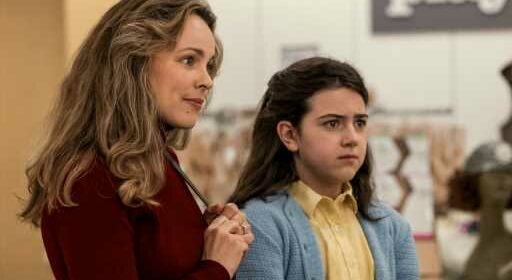Are You There, God? Its Me, Margaret Review: An Appealing but Edgeless Adaptation of a Coming-of-Age Classic

Judy Blume’s landmark 1970 young adult novel “Are You There God? It’s Me, Margaret” remains unusual in its candor. An 11-year-old girl talks freely to the reader, and God, about the anxieties, fantasies and contradictions tripping her up on the path to maturity. Preteen Margaret’s concerns are timeless — peer pressure, crushes, menstruation, faith — and Blume treated them seriously, neither passing judgment on her protagonist’s immature mistakes, nor spicing things up by saddling Margaret with, say, a phony twist or a Nancy Drew-style mystery. Yet this adaptation, written and directed by Kelly Fremon Craig (“The Edge of Seventeen”), seems uneasy putting funny, flawed and all-too-realistic Margaret on screen exactly as she is.
Today, it’s not enough to be representative: Margaret must be a role model, too. (Even an accusation that she plagiarizes her homework from the encyclopedia gets gently buffed.) The result is a nostalgia hit with saccharine artificiality. While that might disappoint Blume fans, young audiences may not miss the original novel’s more honest truths, especially as they’ve been trained to expect tidy stories where protagonists fix their faults and here even (gah!) assure the adults in the film that they’re raising them just fine.
Margaret (Abby Ryder Fortson), an earnest thing with big, curious brown eyes, comes home from summer camp to find herself thrust into transition. She spends the film in flux. Her parents, Barbara (Rachel McAdams) and Herb (Benny Safdie), raised her without a religion, a vagueness she attempts to resolve by visiting various Jewish temples and Christian churches and chatting with her loose concept of a deity. “I’ve heard great things about you,” she says in her first prayer. Worse, her family has moved from Manhattan to New Jersey, leaving behind her beloved grandmother (Kathy Bates, going full Auntie Mame) to fritter her energy on crossword puzzles.
Now, not only must the city kid adjust to suburban lawns and sprinkler parties (two of her neighbors are Blume and her husband George Cooper, in a wordless cameo walking what I presume is their own dog), she also needs to take on her new friends’ fixation with the signposts of womanhood. The ringleader Nancy (Elle Graham), a bossy blonde who adds a welcome burst of energy, insists that Margaret and pals Gretchen (Katherine Mallen Kupferer) and Janie (Amari Alexis Price) must wear bras — even as Nancy gossips about the one developed girl in sixth grade, a wallflower named Laura (Isol Young), who towers over the class like a poppy among dandelions. (It’s jarring to revisit the erratic roll-out of puberty.)
The friendship scenes are standouts. Kupferer gets a hearty chuckle from a new line where her character describes her budding breasts as “wizard hats.” Later, Margaret and Janie suffer as a teen boy at the drugstore rings up their sanitary pads with the languor of a James Bond villain. The too-brief centerpiece is a class film strip on “menstroo-ation,” as over-enunciated by its host. The film snips out Margaret’s outrage to discover that the lecture was “like one big commercial” for a line of feminine products, vowing to never buy the brand when her period starts. (Why not let kids today absorb a little of Margaret’s anti-corporate cynicism?) However, Craig does a great job cutting to each of the girls’ faces as they gaze at the presentation in horror, hope, and suspicion.
Still, it only intermittently feels like we’re observing this world through a child’s eyes. One exception is when editors Oona Flaherty and Nick Moore splice in a shot of an older boy’s armpit hair, just the sort of sneaky, hormone-charged detail the film could use more of. Instead, the running time is padded with a wholly unnecessary subplot about Barbara’s struggle to adjust to becoming a stay-at-home housewife. McAdams invests her formidable empathy and charisma into scenes of the former art teacher burning dinner, hiding her paintbrushes in the closet and signing up for every after-school committee. But we’ve seen this story before and don’t need it barging in here, especially when her daughter barely seems to register it at all. As for her dad, quirky filmmaker and actor Safdie wears retro fatherhood like a Halloween costume, sounding so insincere as he professes his eagerness to mow a lawn that we’re tempted to add subtext to his thin role.
There’s plenty in here to treasure. Audiences might even exhale a sentimental sigh at the Gracie Films logo in the opening credits. But as charming as the film is in its best moments, it’s hard not to be frustrated as it backpedals from the book’s awareness that not all wrongs are righted. Sometimes, our heroines might stay buddies with bullies. Sometimes they might run from conflict and never explain themselves. Sometimes, they might even hurt people without making amends. Sometimes frank talk is more impactful than an idealized fantasy.
Read More About:
Source: Read Full Article